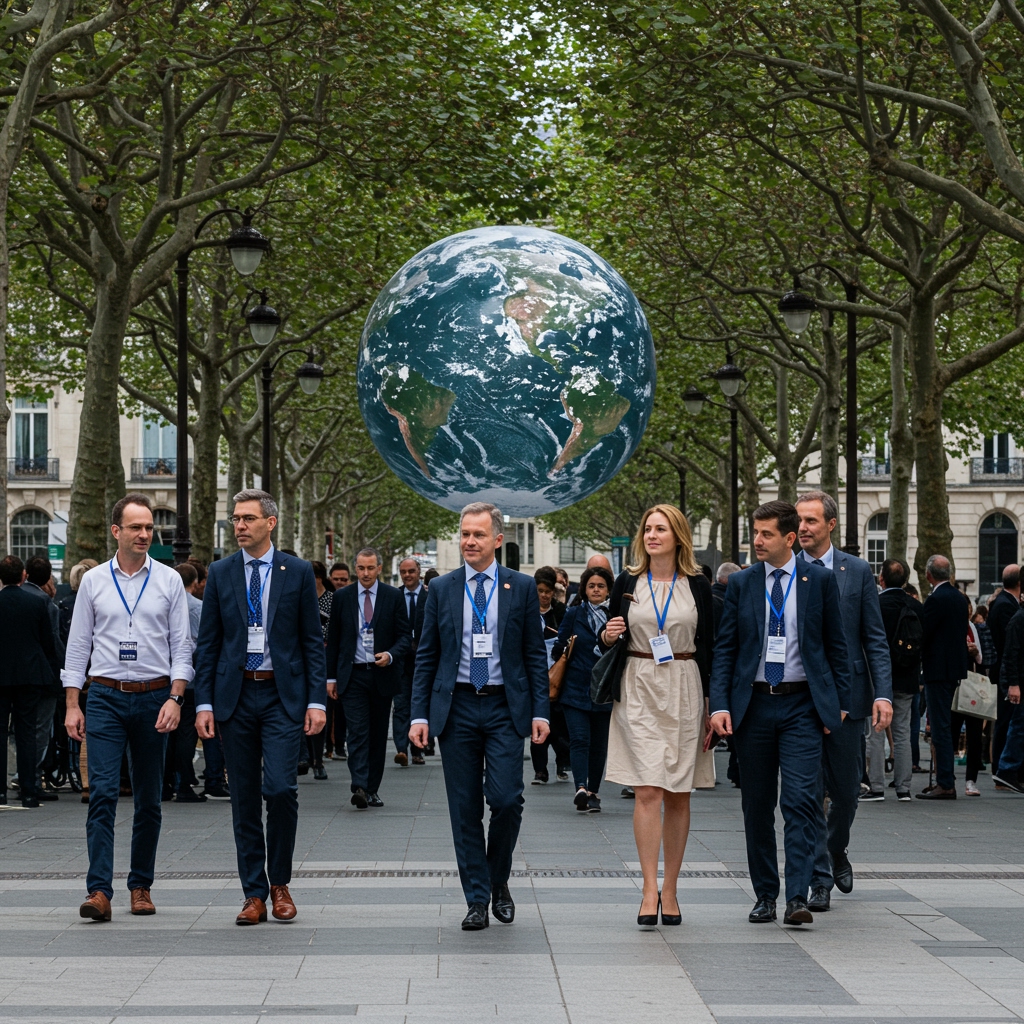SEVILLA, Spain – The Fourth International Conference on Financing for Development (FFD4) officially opened here today, June 30, 2025, marking a critical moment in global efforts to mobilize the resources needed to address pressing sustainable development challenges.
The conference commenced with immediate action, as participating nations formally adopted the Sevilla Commitment. Also known by its Spanish designation, Compromiso de Sevilla, this intergovernmentally negotiated outcome document is set to lay the foundation for a renewed global framework specifically designed to finance development initiatives worldwide.
The adoption of the Sevilla Commitment underscores the urgency recognized by the international community to bridge significant funding shortfalls and address systemic issues hindering progress towards the Sustainable Development Goals (SDGs).
Understanding the Sevilla Commitment
At the core of the Sevilla Commitment are concrete steps aimed at tackling the most significant financial hurdles facing global development today. One of the most striking figures highlighted in the document is the estimated $4 trillion financing gap required annually to achieve the Sustainable Development Goals by their target date.
The Commitment outlines a multi-faceted approach to close this massive deficit. Key strategies include innovative financing mechanisms, increased Official Development Assistance (ODA), and leveraging private sector investment more effectively towards sustainable projects.
Beyond resource mobilization, the document places significant emphasis on addressing the escalating debt crises that burden many developing countries. It proposes mechanisms for more transparent and sustainable debt management, relief where necessary, and preventing future crises through improved lending practices and international cooperation.
A fundamental component of the Sevilla Commitment is the call for ambitious reforms to the rules governing the international financial system. The goal is to enhance fairness, transparency, and accountability within global financial institutions and regulations. Crucially, these reforms are envisioned to shift the focus of the international financial architecture more explicitly towards serving the needs of people and promoting equitable development outcomes, rather than solely market dynamics.
Building on Global Pacts
The FFD4 conference and the adoption of the Sevilla Commitment are not occurring in a vacuum. The meeting leverages and builds upon the momentum generated by recent high-level international agreements. Specifically, it follows the adoption of the Pact for the Future by world leaders in September 2024.
The Pact for the Future, a landmark agreement from the Summit of the Future at the United Nations, included significant commitments relevant to development finance. These included agreements to boost investment in the SDGs, address the burdensome debt carried by many developing nations, and accelerate necessary reforms to the global financial architecture.
The Sevilla Commitment can be seen as a direct implementation pathway for the financial aspects agreed upon in the Pact for the Future, translating high-level political will into a detailed framework for action on financing for development.
A Platform for Action and Innovation
Beyond the formal negotiations surrounding the outcome document, the FFD4 conference in Sevilla is serving as a vital platform for dialogue, partnership, and the launch of new initiatives. The schedule is packed, with over 470 special and side events taking place throughout the conference.
These events bring together a diverse array of participants, including government representatives, international organizations, civil society groups, philanthropic foundations, and the private sector. Coalitions of countries and various stakeholders are expected to utilize these sessions to announce ambitious new initiatives aimed at mobilizing resources, fostering innovation in development finance, and forging partnerships to implement the Sevilla Commitment’s objectives.
The sheer number of side events highlights the broad engagement and the multitude of specific areas within development finance that require attention, from climate finance and biodiversity funding to social protection and infrastructure investment.
The coming days in Sevilla will be crucial as delegates delve into the specifics of implementing the Sevilla Commitment, translating the agreed framework into tangible progress towards a more sustainable and equitable future for all.





